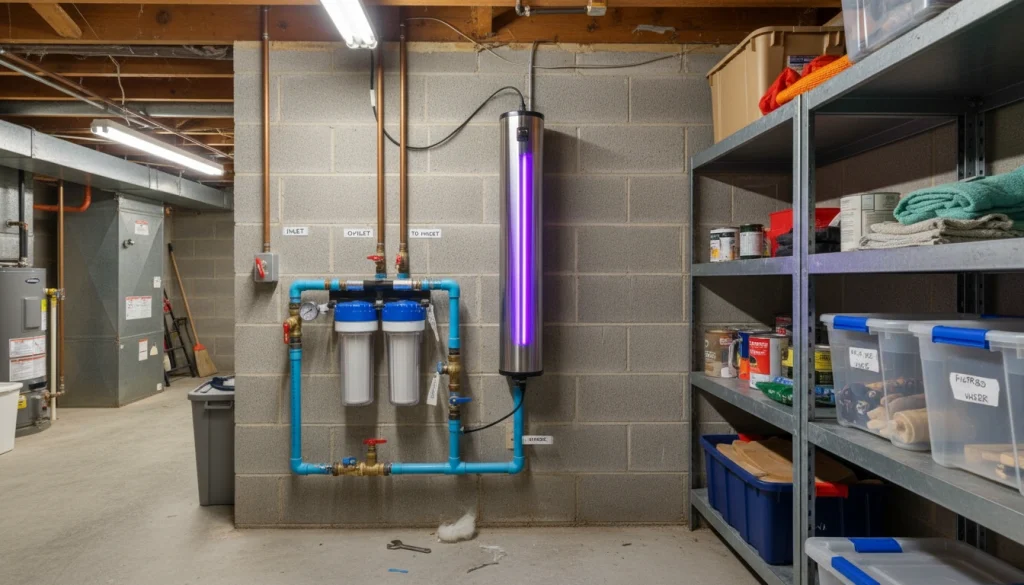For many homeowners, access to clean and safe drinking water is a top priority. While city water typically undergoes municipal treatment, those who rely on private wells are responsible for their own water quality. This is where ultraviolet (UV) water purifiers can play a crucial role. They use advanced technology to neutralize harmful microorganisms, helping ensure the water from your tap is safe to drink.

How UV Water Purifiers Work
A UV water purifier is designed to disinfect water using ultraviolet light at a specific wavelength, usually around 254 nanometers. At this wavelength, the light penetrates the cells of bacteria, viruses, and protozoa, disrupting their DNA and rendering them unable to reproduce. Without the ability to multiply, these microorganisms can no longer cause illness.
It’s important to note that UV treatment does not add chemicals to your water, nor does it alter the taste, odor, or color. Unlike chlorine, which is commonly used in municipal treatment systems, UV purification is a physical process. The system simply exposes water to a UV lamp as it flows through a chamber, instantly neutralizing pathogens.
However, UV systems don’t remove contaminants such as heavy metals, chemicals, or sediment. They are most effective when combined with pre-filtration that clears the water of particles that could shield microorganisms from UV exposure. For this reason, many systems are installed as part of a multi-stage filtration setup.
Are UV Systems a Good Idea for Well Water?
For homeowners who rely on well water, UV purification can be an excellent safeguard. Wells are susceptible to contamination from agricultural runoff, septic system leakage, or naturally occurring microorganisms in groundwater. Even if your water looks clear, it may harbor bacteria such as E. coli, coliforms, or viruses that pose health risks.
UV systems provide peace of mind by ensuring biological contaminants are neutralized before the water reaches your home’s faucets. They are particularly beneficial in households with infants, elderly residents, or anyone with a weakened immune system, as these groups are more vulnerable to waterborne illnesses.
Still, UV purifiers aren’t a one-size-fits-all solution. If your well water has high levels of iron, sulfur, or sediment, pretreatment will be necessary to ensure UV light can do its job effectively. Homeowners should also remember that UV systems require electricity to operate and need periodic lamp replacement, usually once a year.
Professional Installation Matters
While UV systems may sound simple, professional installation is strongly recommended. A licensed water treatment specialist will test your well water, determine whether pre-filtration is needed, and correctly size the system for your household’s water flow. Incorrect installation can reduce effectiveness and compromise your family’s safety.
Professional installers also ensure that the system is easy to service for routine maintenance, such as lamp replacement and cleaning the quartz sleeve around the bulb. Skipping these steps can lead to reduced disinfection performance.
Go With the Pros
UV water purifiers offer a chemical-free, highly effective way to protect your household from waterborne pathogens—especially if you rely on well water. When combined with the right pre-filtration and installed by a professional, they provide a reliable layer of protection that helps keep your family’s water safe, clear, and worry-free.
Schedule a water treatment appointment with the team at American Pump and Drilling today!
